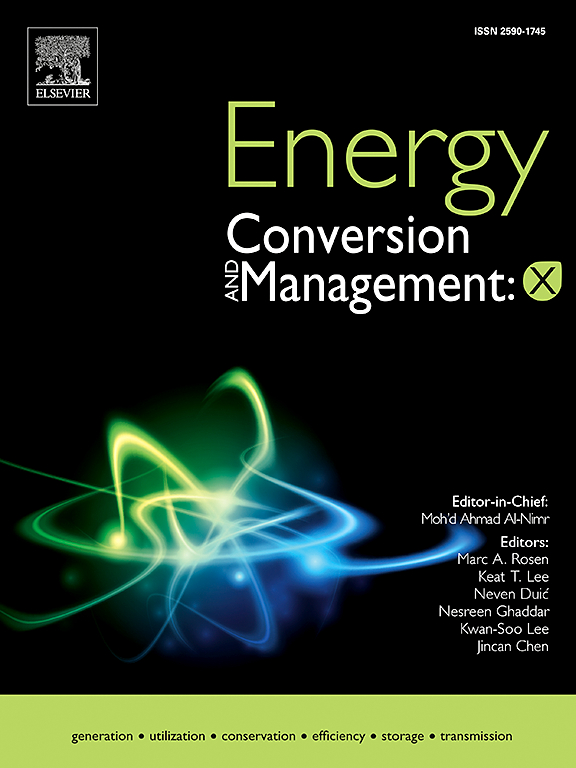智能电网和智能城市系统中能源的兴起、应用、挑战和未来前景
IF 7.6
Q1 ENERGY & FUELS
引用次数: 0
摘要
世界上一半以上的人口居住在城市,城市也消耗了世界上75%的能源,产生了80%的温室气体排放。鉴于能源三难困境需要平衡可持续性、安全性和可负担性的目标,确保城市在生活质量和资源效率方面的智能组织至关重要,重点是能源使用和管理。减少能源使用对气体排放和自然资源耗竭的影响的最有效战略是电气化与使用可再生能源发电相结合。电气化使电力基础设施的开发和管理变得更加困难,因此需要使用智能电网,而智能电网是智能城市的关键组成部分。智能电网技术使更有效、一致和可持续地利用各种能源成为可能。通过改善经济、政府、环境、生活条件、医疗、能源和交通,智慧城市应用程序使人们的生活更轻松、更舒适。本文综述了能源智能电网和智慧城市系统的兴起、应用、挑战和未来展望。几个关键组成部分,如物联网,可再生能源和人工智能(AI),包括深度学习(DL)和机器学习(ML)。最后,该研究强调了可能加强智慧城市安全和抵御现代物理和网络威胁能力的创新战略和工具。本文章由计算机程序翻译,如有差异,请以英文原文为准。
The rising, applications, challenges, and future prospects of energy in smart grids and smart cities systems
More than half of world’s population lives in cities, which also consume around 75 % of world’s energy and produce 80 % of its greenhouse gas emissions. In light of energy trilemma, which requires balancing the goals of sustainability, security, and affordability, it is crucial to ensure that cities are intelligently organized for both quality of life and resource efficiency, with a focus on energy use and management. The most effective strategy to lessen the effect of energy use on gas emissions and the depletion of natural resources is electrification in conjunction with use of renewable energy generation. Developing and managing electrical infrastructure is made more difficult by electrification, necessitating the use of smart grids, which are a crucial component of smart cities. Utilizing various energy sources more efficiently, consistently, and sustainably is made possible by smart grid technology. By improving the economy, government, environment, living conditions, healthcare, energy, and mobility, smart city apps make people’s lives easier and more comfortable. This paper reviews the rising, applications, challenges, and future prospects in energy smart grids and smart cities systems. Several key components, such as IoT, renewable energy sources, and artificial intelligence (AI), including deep learning (DL) and machine learning (ML). Lastly, the study highlights innovative strategies and instruments that might strengthen smart city security and resilience against modern physical and cyber threats.
求助全文
通过发布文献求助,成功后即可免费获取论文全文。
去求助
来源期刊

Energy Conversion and Management-X
Multiple-
CiteScore
8.80
自引率
3.20%
发文量
180
审稿时长
58 days
期刊介绍:
Energy Conversion and Management: X is the open access extension of the reputable journal Energy Conversion and Management, serving as a platform for interdisciplinary research on a wide array of critical energy subjects. The journal is dedicated to publishing original contributions and in-depth technical review articles that present groundbreaking research on topics spanning energy generation, utilization, conversion, storage, transmission, conservation, management, and sustainability.
The scope of Energy Conversion and Management: X encompasses various forms of energy, including mechanical, thermal, nuclear, chemical, electromagnetic, magnetic, and electric energy. It addresses all known energy resources, highlighting both conventional sources like fossil fuels and nuclear power, as well as renewable resources such as solar, biomass, hydro, wind, geothermal, and ocean energy.
 求助内容:
求助内容: 应助结果提醒方式:
应助结果提醒方式:


